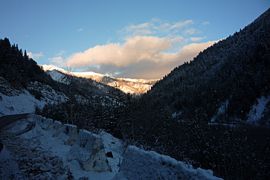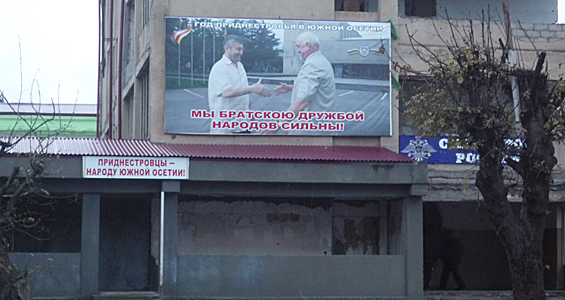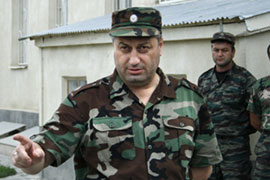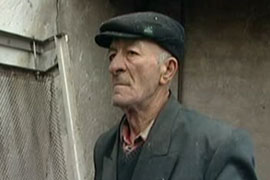South Ossetians look to Russia
Nazanine Moshiri reports many residents of breakaway region see Moscow as only hope.

 |
| With international recognition unlikely, South Ossetia sees Mother Russia as its only saviour |
My passport has been checked and stamped by Russian border police, I am now officially in South Ossetia.
But this does not feel like a new nation, there is no one here to look at my passport, and no real sign that you have entered another state.
The first strategic checkpoint on the de facto border is manned by both Ossetian and Russian soldiers.
| In video | ||
|
|
There are thousands of Russian soldiers based in South Ossetia and the other breakaway region of Abkhazia, troops the Russians claim are here to protect the people.
For most of the world though, this territory has effectively been annexed.
We speed through the Roki tunnel, our police escort’s spinning lights reflecting off its walls.
The last time I travelled along this 2,000-metre mountain gorge, the heat was almost unbearable, now it is winter and the road is perilously icy.
The 4km-long tunnel is the natural border between Russia and Georgia’s breakaway region.
It has always been a major route to the Caucasus, used by invaders and traders throughout the ages.
During the August war it was used again, this time by the Russians for their supplies.
If the Georgians had managed to close it, the outcome of the conflict could have been very different.
Capital renamed
We enter Tskinval, the new name the administration has given to South Ossetia’s capital, the old Georgian name Tskhinvali has been wiped from the map.
The stench of death has now gone, but the gaping holes left by Georgian missiles are still visible.
The few signs of reconstruction we saw have been funded by Russian money and the beleaguered administration knows it’s too small and poor to survive on its own.
Eduard Kokoity, South Ossetia’s president, and described by some as just a Russian stooge, meets us at his offices.
The government building didn’t escape the shelling and there are still some walls that need to be plastered.
 |
| Kokoity says that independence has made a difference to South Ossetia [AFP] |
Kokoity greets us warmly, he needs all the publicity he can get.
Since he declared independence for South Ossetia, only Russia and Nicaragua have recognised its statehood.
He still insists though that independence has made a difference.
“Today, after Georgia’s 18-year blockade and aggression, people have started to think about the future, they have really started to think about it feeling more confident that this future will be peaceful,” the president said.
A few kilometres from his offices we found people less than confident about that future.
Zaira Khasieva, an elderly woman, shows us the remains of her home which was destroyed by Georgian shelling.
Her son had to be dragged from under the rubble and her family now lives in a tent at the bottom of her garden.
They spend the evening huddled around a tiny stove. She’s bitter and disillusioned.
“Look now at where we are sleeping, how are we going to spend the winter there? I don’t know how we are going to survive. They are not giving us wood, they are not giving us housing, they are not giving us anything not even a heater,” she said.
Mother Russia
The Red Cross is extremely concerned about the humanitarian situation here in South Ossetia, particularly the villages of this mountainous region.
 |
| South Ossetians are living in a political black hole |
The province relies heavily on farming, but the conflict hit their harvest hard, thousands of people urgently need food and medical aid.
A village woman pumping water out of a well said: “It’s a very difficult life we have no gas, no water right now we have electricity, but we don’t know how long that will last look at our living conditions how are we going to survive?”
There is a strong belief here that Russia is their only saviour.
Felix is a taxi driver who has lived through two wars with Georgia and is proud of the Russian passport he recently received.
He is one of thousands of South Ossetians with Russian citizenship.
For Felix and others here independence means uniting with their powerful neighbour.
“Russia will now help us, we will have jobs and we will have a good life,” he said.
As we come across a market closed during the conflict, and which is now bustling with life, there are some signs of that already.
But the reality is that these people are living in a political black hole.
With reconciliation with Georgia out of the question, and international recognition unlikely, their only option is to turn to mother Russia.
